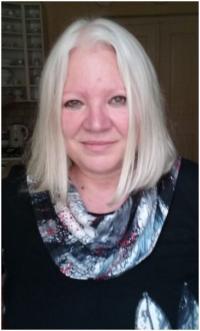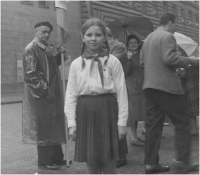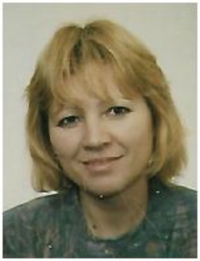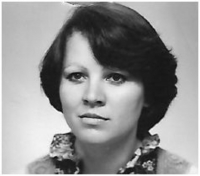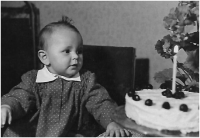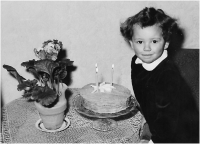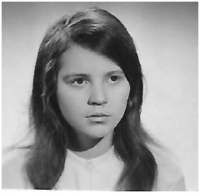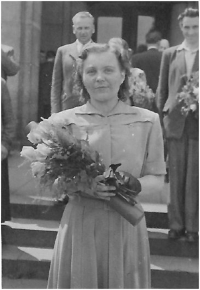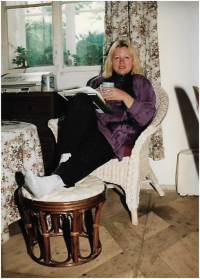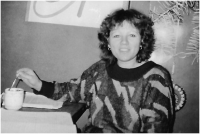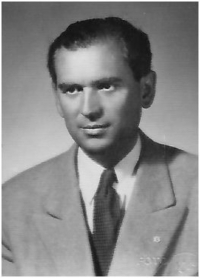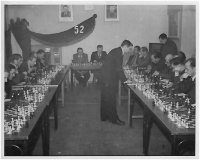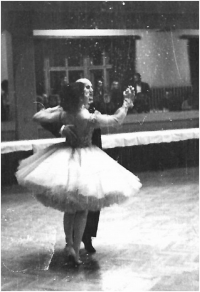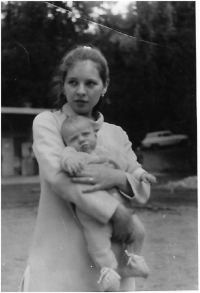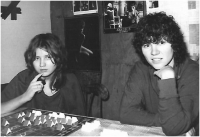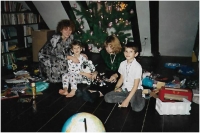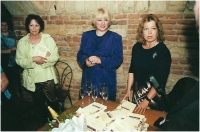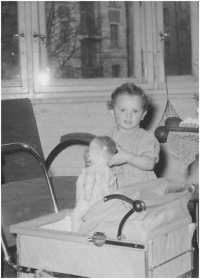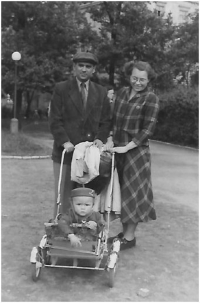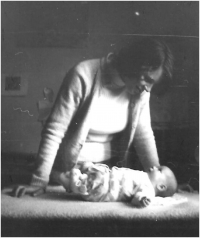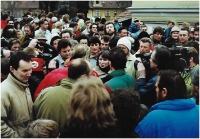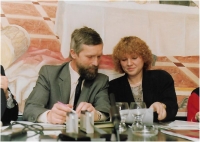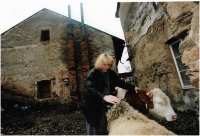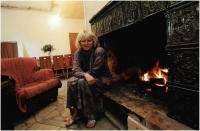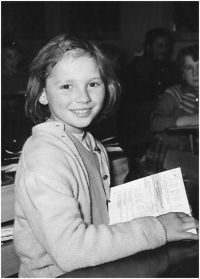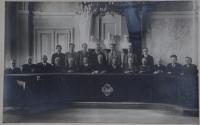Keep being human and live your life to the fullest
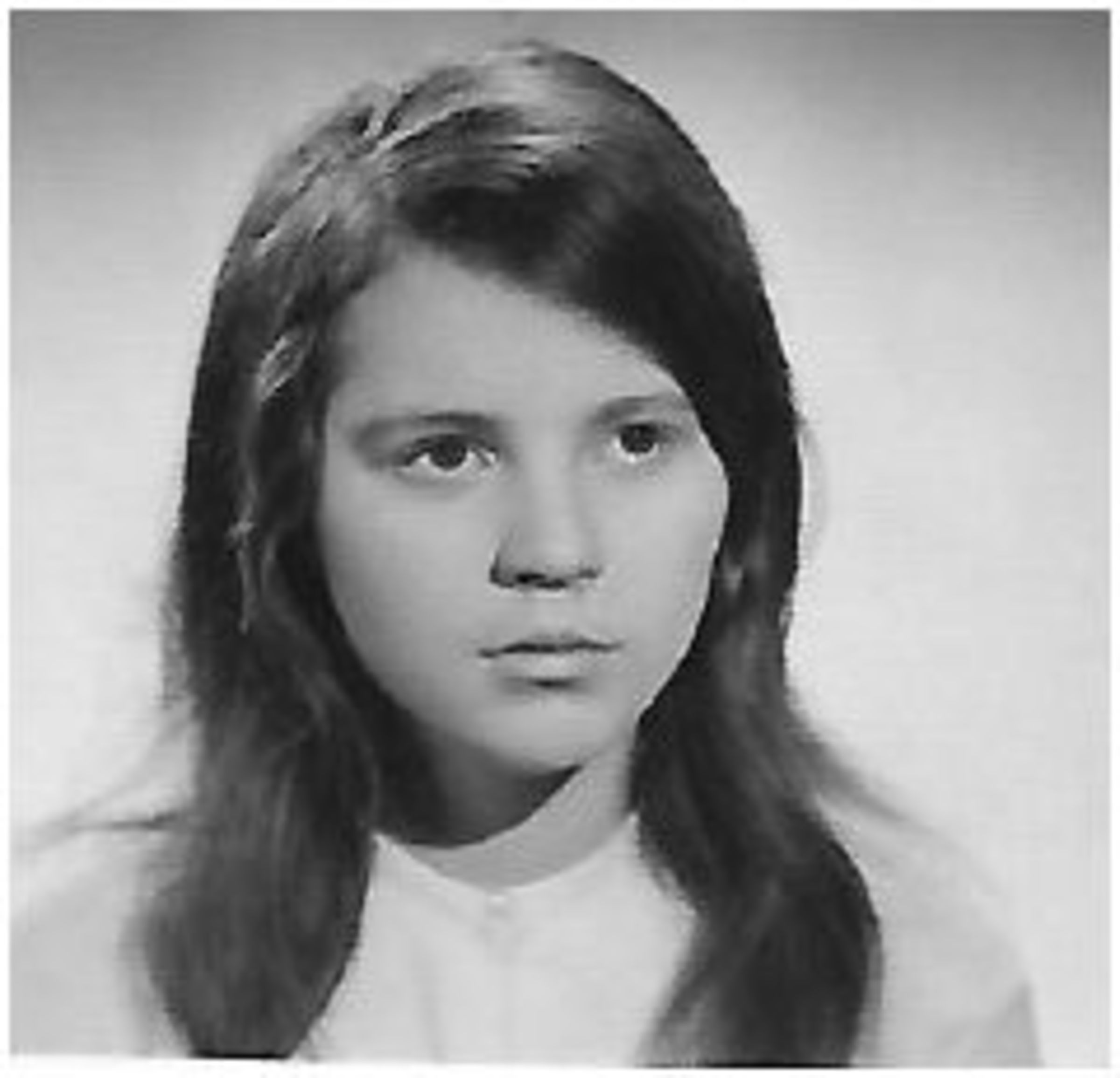
Download image
Eva Joachimová, née Rajkovičová, was born on the 29th of March 1954 in Prague as the eldest of two children. Both her parents were communists. Her father was an important politician, journalist, and emigrant from Yugoslavia, where he returned in 1956 and was imprisoned for high treason. Eva went to elementary school and high school in Vinohrady, Prague. After the occupation of 1968 she broke up with her mother because of their different opinions. In 1972 she got married and moved to Brno where her first daughter was born. She got divorced in 1975 and moved back to Prague. In 1977 she and her friends signed Charter 77 and she met Dana Němcová with whom she lived for a short while. She married again and had her second daughter. Her activities in the Charter 77 environment included colportage of newspapers along with Dana Němcová and Professor Jiří Hájek. She also went to so-called apartment seminars, to university, and to apartment theatre. Before 1989 she and her third husband had two children - their son was born in 1984, their daughter in 1985. The state was monitoring her using occasional interrogations and regularly bullied her through the child protection services of Prague 1 - in 1989 they threatened to take her children from her custody. In 1989 she was a member of an independent committee for investigating the events at Národní třída and in 1990 she wrote a samizdat called Past about the experience. She worked as deputy of the Prague 1 Mayor between the years 1990 and 1994. From 1995 she has been working in the field of Chinese medicine as a teacher and healer. Between the years 1996 and 2017 she reconstructed an estate in the Čáslav area and moved there from Prague. She organizes cultural and social events there, and also runs her medicinal practice and a guest house. She wrote five books. She has five grandchildren and lives in a mill near Čáslav with her fourth husband.
